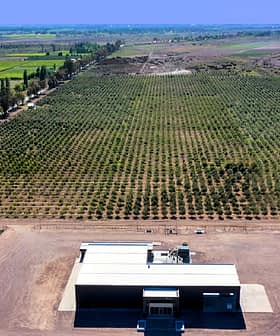Chaos theory says that a minor event such as a butterfly flapping its wings could cause unexpected changes in the broader system the butterfly lives in, and affect the weather at a distant point by creating a little tornado.
Just like economists should add a twist of Chaos in their elusive theories of economic development and prosperity, the olive oil industry faces similar situations of various butterfly effects which induce a sometimes chaotic pattern in the sector.
The construction of a luxurious hotel complex in southern Greece spawned new laws for the whole country which bans any disposal of the liquid residue from olive oil mills into the sea.
As beneficial as this is for the environment at first view, it forces the oil mill owners to switch to the modern two-phase operation mode or turn to other costly methods of waste disposal, without any central planning or guidance, or any supporting funds. The consequences in the long run could be really chaotic, especially if current unstable conditions continue.
The summer drought in Spain meant limited oil yield and increased prices in Europe and beyond, but then suddenly it rained cats and dogs in Andalusia and prices dropped with enough rain to sustain a larger oil production. But then torrential rains damaged trees and washed away the olive drupes thus reducing the yield.
Which will it be? Producers, marketers and consumers around the world don’t know whether to expect a tornado or sunshine, since Spain is the biggest olive oil producer and, along with Italy, control and influence the global olive oil market.
Conventional automobiles running on gas and diesel are allegedly a climate change hastening factor, and so a biofuel car is considered to be an environmentally friendly alternative. But biofuel cars need biofuels and this has created an unparalleled struggle for monocultures, which have in turn reduced the available land for farming other products.
And most of the crops of seed oil-producing plants (like sunflower and soybeans) are being seized to make biodiesel. This leads to a chain reaction of ascending prices: less seed oil in the market means higher prices, so consumers worldwide would turn to olive oil which, in turn, sees prices going up with demand.
As good as this sounds for olive oil producers, an imminent increase of the price of other food products due to the monocultures is unavoidable. Consumers will be confronted with an inflationary trend in prices and cut down on their expenses, and buying less olive oil among others. Such chaotic phenomena are very difficult to understand and predict.
Human intervention or not, the butterfly effects indicate that the olive oil industry is a global, interconnected and perplexed system sensitive to occurrences of minor incidents that can lead to huge fluctuations and destabilization.









